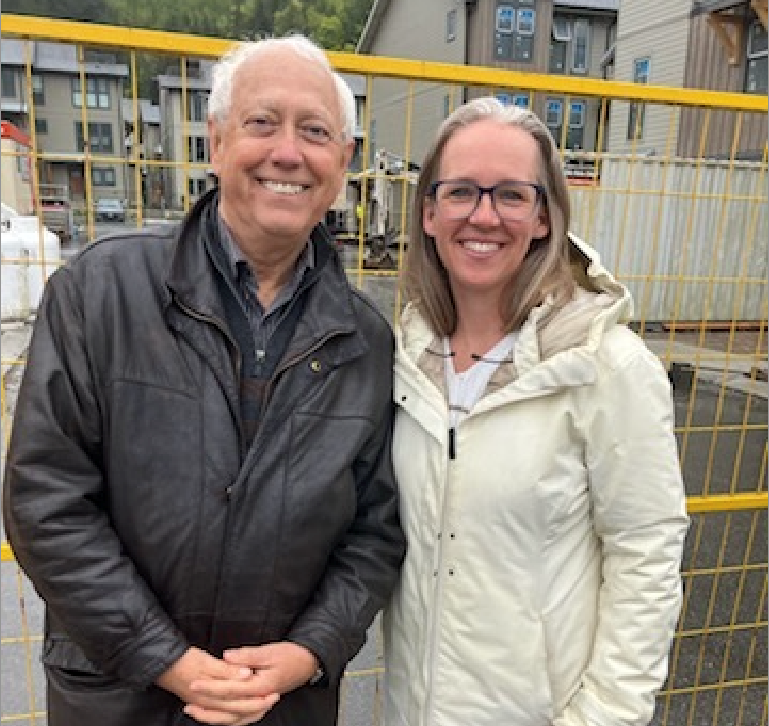What is “good governance?”
In discussion with the Squamish-Lillooet Regional District (SLRD) chair, it seems it may be about simpler things that aren’t always obvious, such as fair representation, and being open to learn and understanding.
It was recently reported that the SLRD has a relatively low number of representatives from unincorporated communities (usually First Nations), and very unique needs owing to its diverse topography.
The SLRD covers the areas of Squamish, Whistler, Pemberton and Lillooet. It is among 27 regional districts in the province.
SLRD board chair Jen Ford recognizes the importance of progress and learning in working relationships.
The Squamish Chief spoke with Ford this week to discuss what may be misunderstood about the SLRD’s workings, and how they are enhancing relations with the First Nations, among their diverse communities and those communities’ needs.
What follows is a version of that conversation edited for length and clarity.
Q: How does the SLRD work to cover such a large area, and do you feel there is anything that sets you apart from other regional districts?
A: One of the things that you'll see if you look into the 27 different regional districts in the province is that each one of them, and I've gotten to know chairs and members of the regional districts, is that they are a widely varied group. So the services that we each provide are different, and how we provide those services within different regional districts is different.
The SLRD is typically serving a population that is widespread and a variety of different rural and very remote areas. There are limited services that make sense for areas that are rural and far apart, but obviously there's a basic level of service that everyone expects, which has evolved significantly over many years and continues to grow.
Q: What have your priorities become over the years, especially in working with minority communities?
A: [In 2016], the SLRD determined that our strategic priorities were committed to becoming a Regional District of Reconciliation. We committed to building relationships and understanding how we could best serve the communities, not only within the SLRD, but within the distinct and unceded territories of the various First Nations.
Q: How are you working to ameliorate tensions with the First Nations and enhance working relationships?
A: We have 11 different First Nations within our region that we would like to have relationships with, and they've ebbed and flowed over the years. We've committed to community forums. They’re a gathering of elected leaders of the Nations, including the Sḵwx̱wú7mesh Úxwumixw (Squamish Nation), the St'át'imc Nation, and the Lil'wat Nations, and then the regional district. The member municipalities participate as well. And so that really is sort of the foundation of how we can build a relationship.
It’s not easy. There are always competing interests and competing priorities. [Our framework of Reconciliation is] not prescriptive, but the objective is to set a tone. We ask ‘How do we choose to show up in that work?’ That's work that we've been spending a lot of time on, dedicating a lot of staff time, and I think we're at the last stages of that work. But yeah, [it’s] certainly important work, and it's ongoing.
Q: What is an example of change within the SLRD, or in legislation, that you feel may be necessary in order to ‘show up’ consistently?
A: There are regional districts where they have First Nations as members of the board, and that's something that we're really keen to understand and do better.
For some of the work we've been doing on regional transit, for example, when we first [formed] a committee to work on regional transit, we needed a change in the legislation so that the Lil’wat Nation and the Squamish Nation can participate as full members of a commission, for regional transit to self-govern. That is not something that's currently allowed by the legislation. So it's a top priority for us as far as good governance goes, and that's certainly important work for us.
***
It was Local Government Awareness Week, May 11-17 this year, for which BC’s regional districts took the chance to educate the public and media about their roles, functions, and services to the community, and encourage community participation.
You can register to participate in SLRD engagement opportunities and find numerous ways to get involved on their website.
Ina Pace is The Squamish Chief's Local Journalism Initiative (LJI) reporter.
This reporting was produced through the LJI, which supports original civic journalism across Canada.




